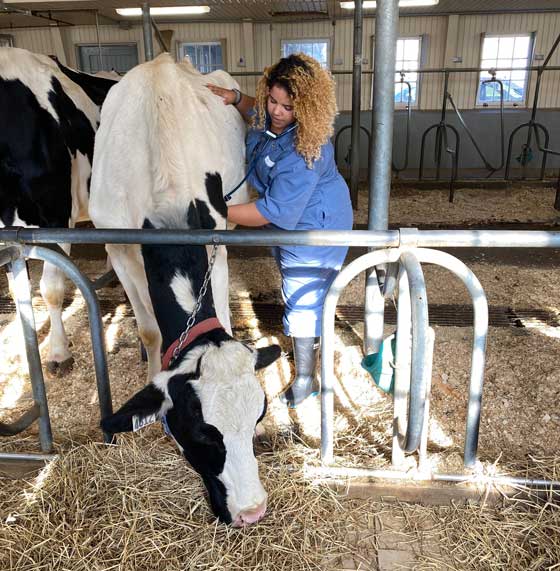By the 2022 January deadline, just over 43% of all 18-year-olds in the UK had applied to UCAS. With not only the number of university applications increasing yearly, but also the competition, students are having to go to greater lengths to demonstrate their passion and relevant experience for their chosen subject, as well as to showcase other skills which will make them an asset to their university community.
In this article we share our advice on how school leavers can make their application stand out from the crowd and maximise their chance of success.
Super-curricular activities
Top predicted/achieved grades in your chosen subject(s) are undoubtedly a strong basis for any application, but admissions teams will be looking for a deeper understanding as well as an interest that extends beyond the classroom. They want students who will be engaged in their university seminars and tutorials, so applicants should try to find effective ways to convey their eagerness to learn and motivation to succeed within their chosen academic field. This is where students should consider undertaking super-curricular activities to bolster their personal statement.

Although they sound similar, super-curricular activities differ from extra-curricular in that super- are related to and help take your studies further. For example, medicine hopefuls could take part in voluntary clinical work, or enter competitions where elements of the research involved is not covered as part of their school’s syllabus. Reading a challenging book on a related topic can also go a long way.
Several summer schools are now offering courses that help students prepare for their university studies, so keep an eye out for these. Check out our recent article on the benefits of summer schools, as well as some great examples of ones taking place this year.
To summarise, examples of super-curricular activities include:
- Voluntary work related to the field of study
- Shadowing a professional, e.g., an architect
- Essay competitions
- Online courses, e.g., coding courses for those wishing to study Computer Science
- Additional reading on the subject
- Trips to places of interest, like museums and art galleries
- Starting a blog related to the subject
- Summer schools, e.g., the Introduction to Law course at Charterhouse
Extra-curricular activities
By participating in extra-curricular activities, students will gain sought after transferrable skills that they can apply in both their academic studies and wider university life. Make sure to include any long-term commitment in your personal statement, as they can serve as a testament to perseverance and determination, both of which are invaluable skills in higher education.
Being part of a team, whether it be a drama group, orchestra, or sports team convey good communication, leadership and collaboration. Although university work is often carried out individually, many faculties also set graded group projects, therefore these three characteristics are held in high regard by admissions teams.
In-depth research on the course
Remember that you should always focus on the specifics of the course and discuss which elements you are looking forward to studying the most. Simply stating that you wish to study Spanish because you like the language is not enough to impress admissions teams.
If students are unsure which course they would like to apply for, they should consider speaking to an education consultant who will be able to advise based on the student’s current subjects and academic goals, as well as provide support with drafting the personal statement.
Interview practice
The UCAS application is only the first hurdle for many courses.  Due to the volume of applications, heavily subscribed courses including engineering, medicine, law, dentistry, music, and veterinary science usually require students to attend interviews.
Due to the volume of applications, heavily subscribed courses including engineering, medicine, law, dentistry, music, and veterinary science usually require students to attend interviews.
Questions tend to revolve around competence for the course and why the student has applied. Although it can be difficult to prepare answers for unknown questions, interviewees should certainly schedule some mock interviews to ensure that they are familiar with the process and to prepare them for the style of questions that they could be asked.
In comparison, Oxbridge interviews are renowned for often being highly theoretical and different to the typical university interview. In this instance, one of the best ways to prepare would be to arrange an interview session with an ex-Oxbridge student, so they can offer tips for success based on their own experience and that of their peers.
Many Gabbitas tutors have years of experience in supporting students with their Oxbridge interviews. To find out more, head to our tutoring page or email the team at tutoring@gabbitas.com.
Additional test preparation
To help filter applications further, some courses have an added extra step requiring applicants to sit an additional test. Examples of these include the MAT and STEP (maths), ENGAA (engineering), LNAT (law), BMAT (medicine), and Oxbridge’s critical thinking tests. A strong score in these can add real value to an application so students are heavily encouraged to prepare beforehand.
Whilst the content of the questions is often difficult to predict, the style of questioning is similar each time. Spending a few hours with an admissions expert to practice these is recommended to achieve as high a score as possible.
Whilst there is certainly a lot to consider, the process need not be daunting. Applicants should instead view their university application and the preparation involved as a chance to challenge themselves and discover more about their passion. If any problems or doubts arise along the way, there are always experts to assist.
Get in touch
If you would like to find out about how Gabbitas can help you with your UCAS application, or to discuss anything mentioned in the article, please get in touch today by emailing info@gabbitas.com or call +44 203 026 7443.


